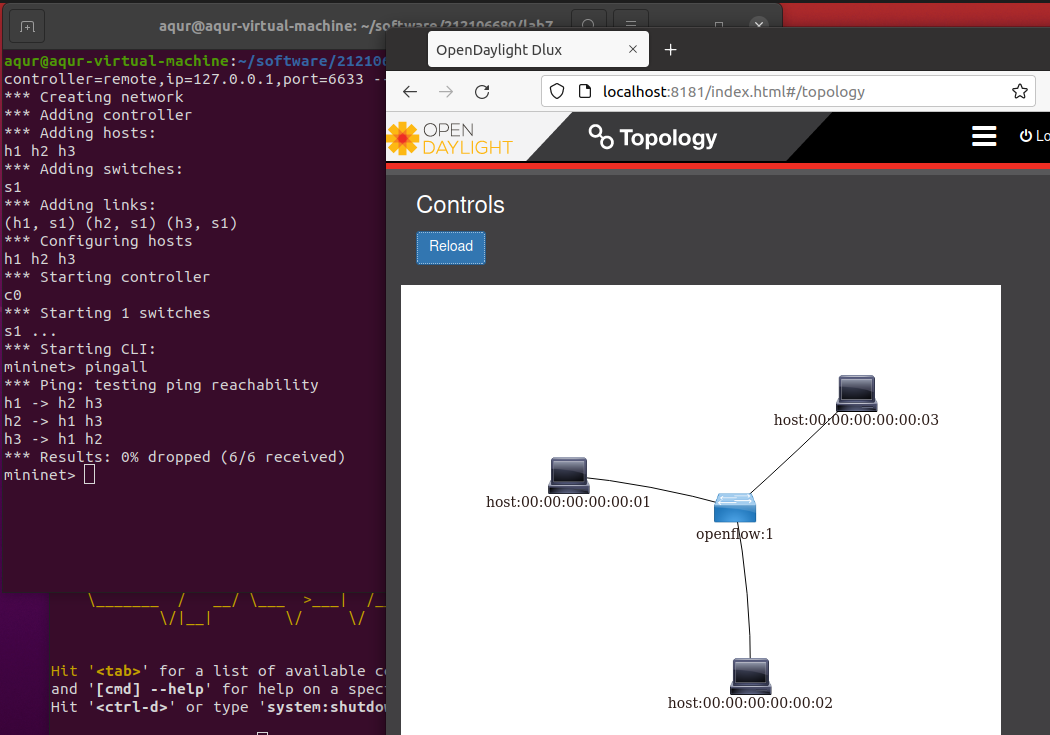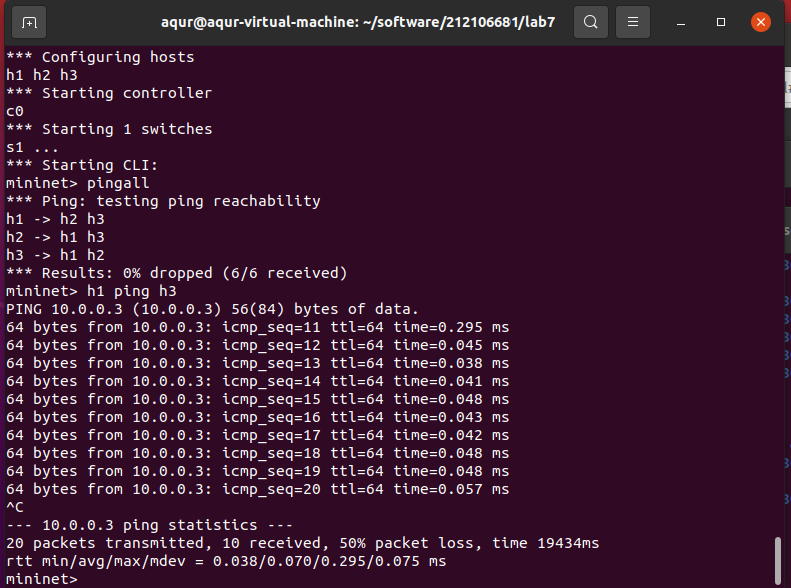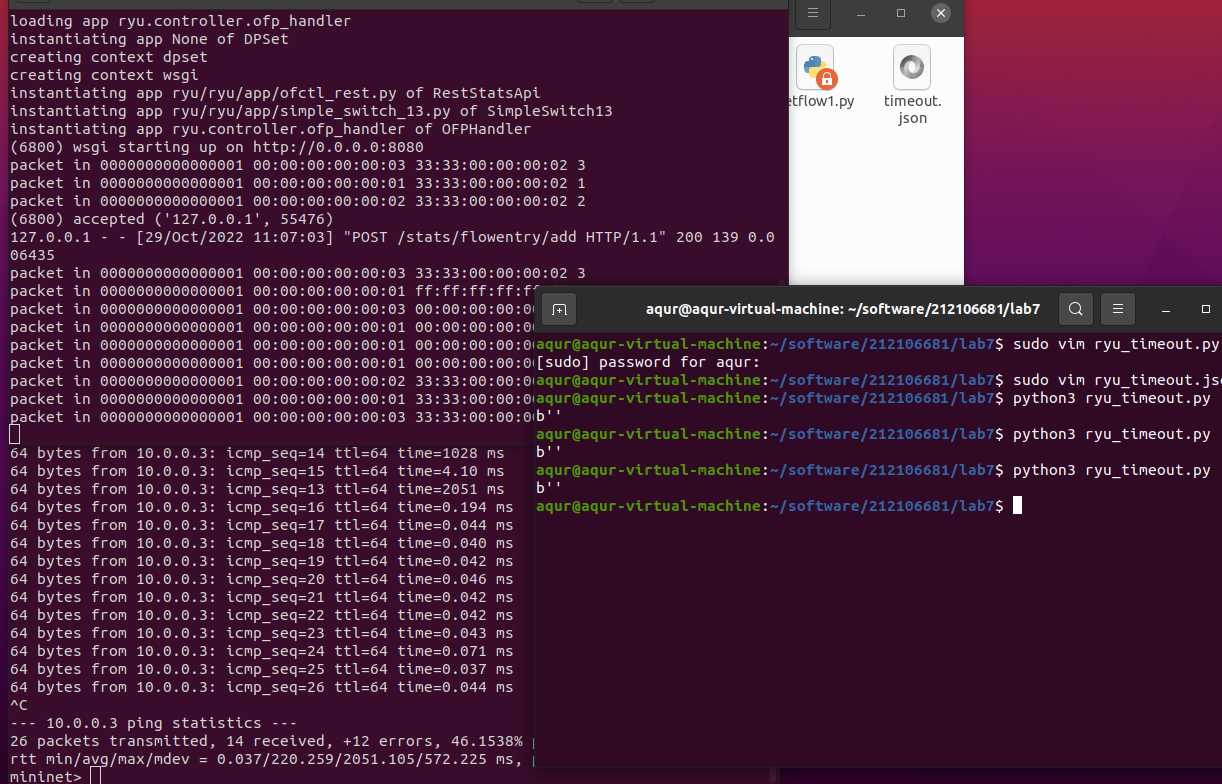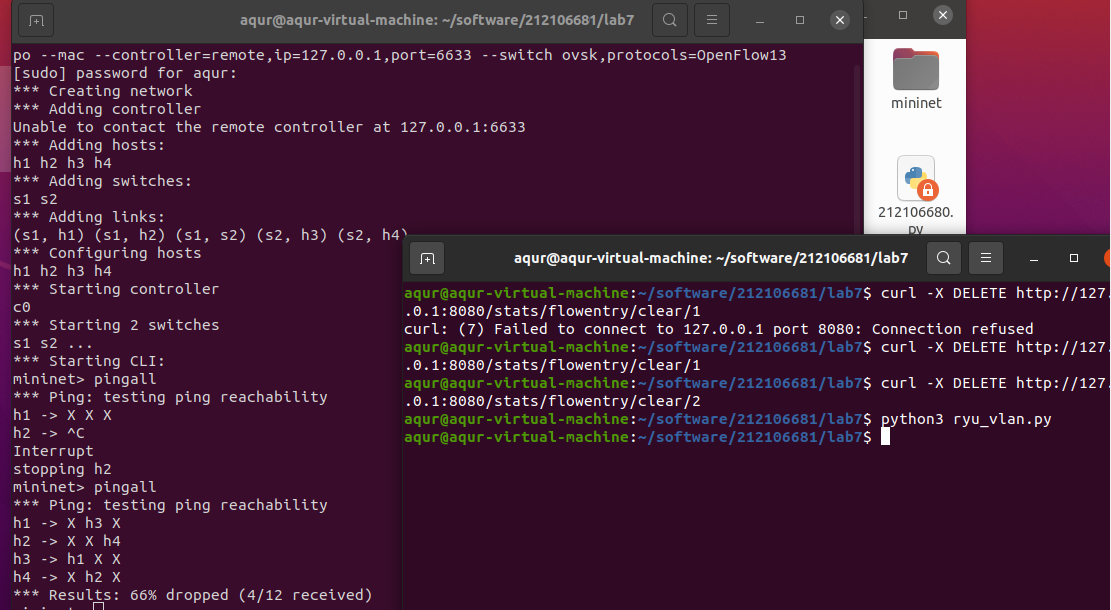实验7:基于REST API的SDN北向应用实践
实验7:基于REST API的SDN北向应用实践
一、实验目的
- 能够编写程序调用OpenDaylight REST API实现特定网络功能;
- 能够编写程序调用Ryu REST API实现特定网络功能。
二、实验环境
- 下载虚拟机软件Oracle VisualBox或VMware;
- 在虚拟机中安装Ubuntu 20.04 Desktop amd64,并完整安装Mininet、OpenDaylight(Carbon版本)、Postman和Ryu;
三、实验要求
(一)基本要求:编写Python程序,调用OpenDaylight的北向接口实现以下功能
-
利用Mininet平台搭建下图所示网络拓扑,并连接OpenDaylight

-
下发指令删除s1上的流表数据

- 下发硬超时流表,实现拓扑内主机h1和h3网络中断10s


点击查看代码
编写Python程序,调用Ryu的北向接口实现以下功能
- 实现上述OpenDaylight实验拓扑上相同的硬超时流表下发。

- 参考Ryu REST API的文档,基于VLAN实验的网络拓扑,编程实现相同的VLAN配置。提示:拓扑生成后需连接Ryu,且Ryu应能够提供REST API服务
VLAN_ID Hosts
0 h1 h3
1 h2 h4
(二)进阶要求
OpenDaylight或Ryu任选其一,编程实现查看前序VLAN实验拓扑中所有节点(含交换机、主机)的名称,以及显示每台交换机的所有流表项。
点击查看代码
# getall.py
import requests
import time
import re
class GetNodes:
def __init__(self, ip):
self.ip = ip
def get_switch_id(self):
url = 'http://' + self.ip + '/stats/switches'
re_switch_id = requests.get(url=url).json()
switch_id_hex = []
for i in re_switch_id:
switch_id_hex.append(hex(i))
return switch_id_hex
def getflow(self):
url = 'http://' + self.ip + '/stats/flow/%d'
switch_list = self.get_switch_id()
ret_flow = []
for switch in switch_list:
new_url = format(url % int(switch, 16))
re_switch_flow = requests.get(url=new_url).json()
ret_flow.append(re_switch_flow)
return ret_flow
def show(self):
flow_list = self.getflow()
for flow in flow_list:
for dpid in flow.keys():
dp_id = dpid
switchnum= '{1}'.format(hex(int(dp_id)), int(dp_id))
print('s'+switchnum,end = " ")
switchnum = int(switchnum)
for list_table in flow.values():
for table in list_table:
string1 = str(table)
if re.search("'dl_vlan': '(.*?)'", string1) is not None:
num = re.search("'dl_vlan': '(.*?)'", string1).group(1);
if num == '0' and switchnum == 1:
print('h1',end = " ")
if num == '1' and switchnum == 1:
print('h2',end = " ")
if num == '0' and switchnum == 2:
print('h3',end = " ")
if num == '1' and switchnum == 2:
print('h4',end = " ")
print("")
flow_list = self.getflow()
for flow in flow_list:
for dpid in flow.keys():
dp_id = dpid
print('switch_name:s{1}'.format(hex(int(dp_id)), int(dp_id)))
for list_table in flow.values():
for table in list_table:
print(table)
s1 = GetNodes("127.0.0.1:8080")
s1.show()
(三)个人总结
本次实验难度较难,花费了不少时间,进一步学习了用OpenDaylight和Ryu的rest API来实现特定的要求,也还进一步学习了python的request库。同时在实验中遇到问题时,我查看了相关文档,进行了相关的搜索,锻炼了信息检索和阅读文档的能力。



